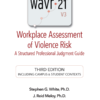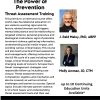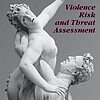Assessing, Managing, and Treating Suicidal Risk
Suicide is the 10th leading cause of death and 12,000,000 adult Americans struggle with serious suicidal thoughts each year. Yet, problematically, many mental health clinicians are not sufficiently trained to work with patients who are suicidal. This often results an over-reliance on medications or brief inpatient admissions, neither of which has proven effective in decreasing suicidal ideation and/or behaviors. Fortunately, there are many recent innovations in the assessment and treatment of suicidal risk with evidence-based approaches that enable providers to work effectively with suicide risk on an outpatient basis using suicide-focused care. This presentation will highlight new models of understanding suicidal risk, innovations in clinical assessment, management of acute risk, and the effective treatment of suicidal risk. Using such approaches decreases exposure to malpractice liability and ensures ethical and competent treatment of this major public and mental health concern.
Workshop Content:
Innovations in the assessment and treatment of suicidal risk
New models of understanding suicidal risk
Management of acute suicidal risk
The effective treatment of suicidal risk
The Collaborative Assessment and Management of Suicidality (CAMS) approach to managing suicidal risk
Workshop Objectives:
Describe two new innovations in the assessment and treatment of suicidal risk
Identify two new models of understanding suicidal risk
Describe the standard of practice for the management of acute suicidal risk
List the components of effective treatment of suicidal risk
Describe the Collaborative Assessment and Management of Suicidality (CAMS) approach to managing suicidal risk





